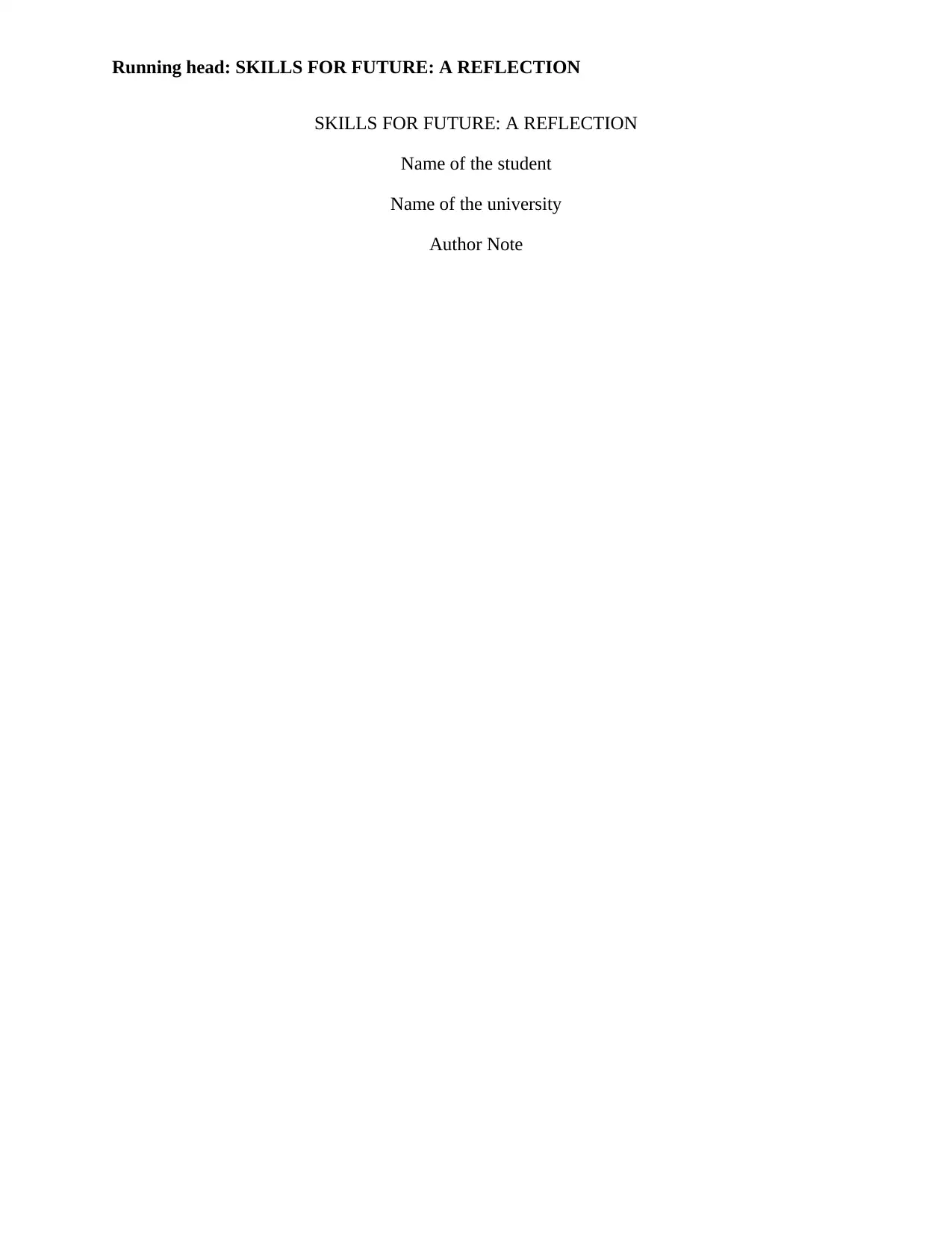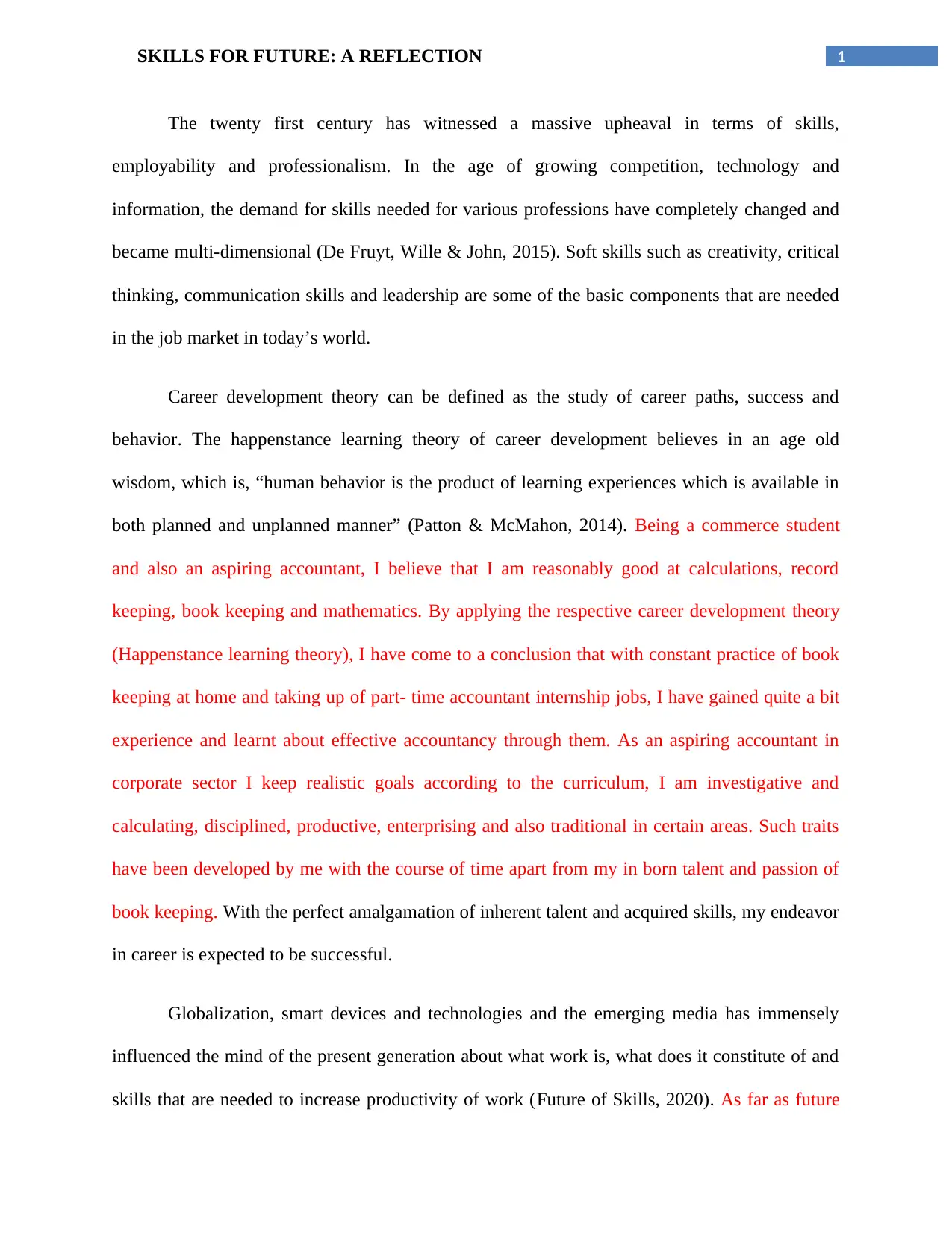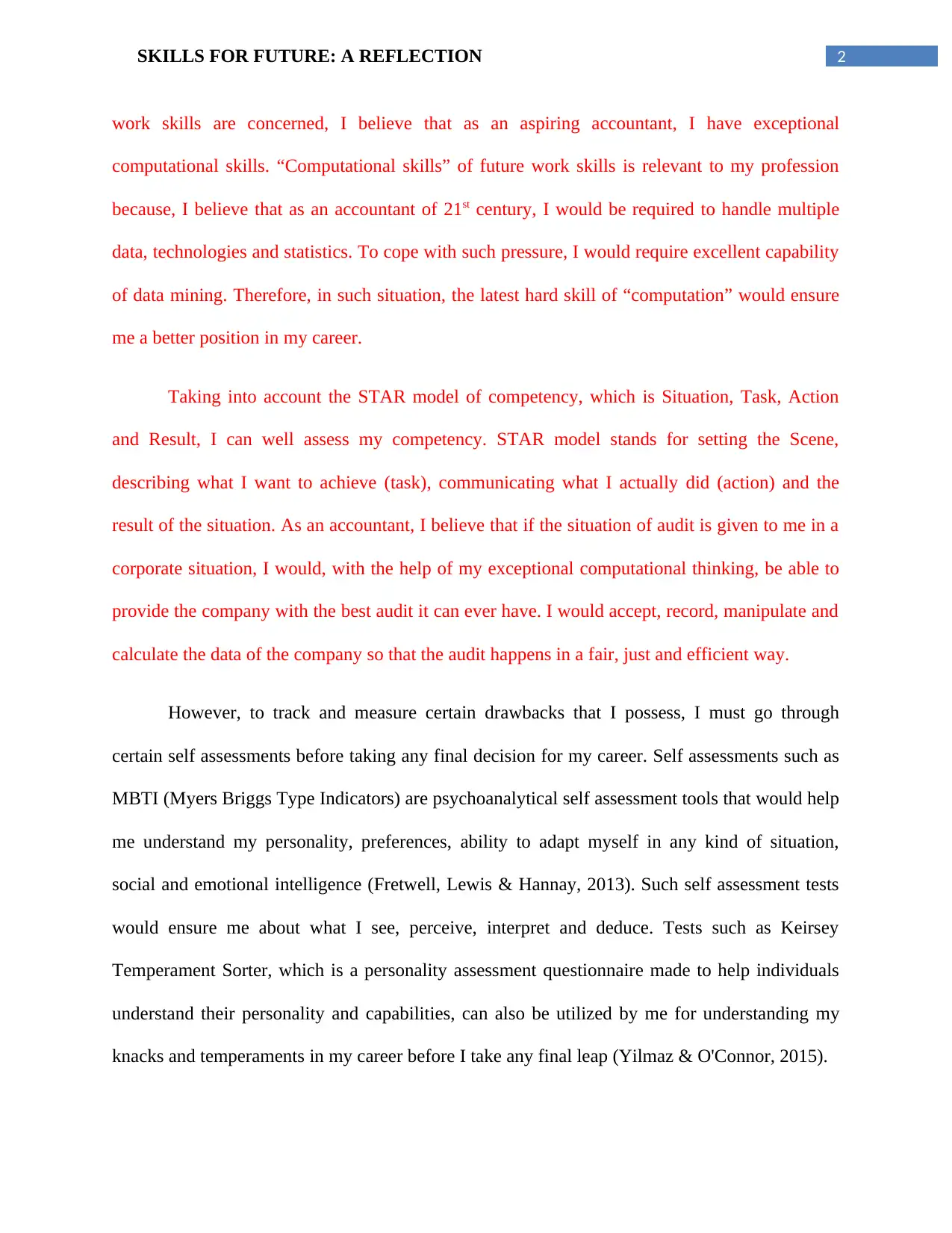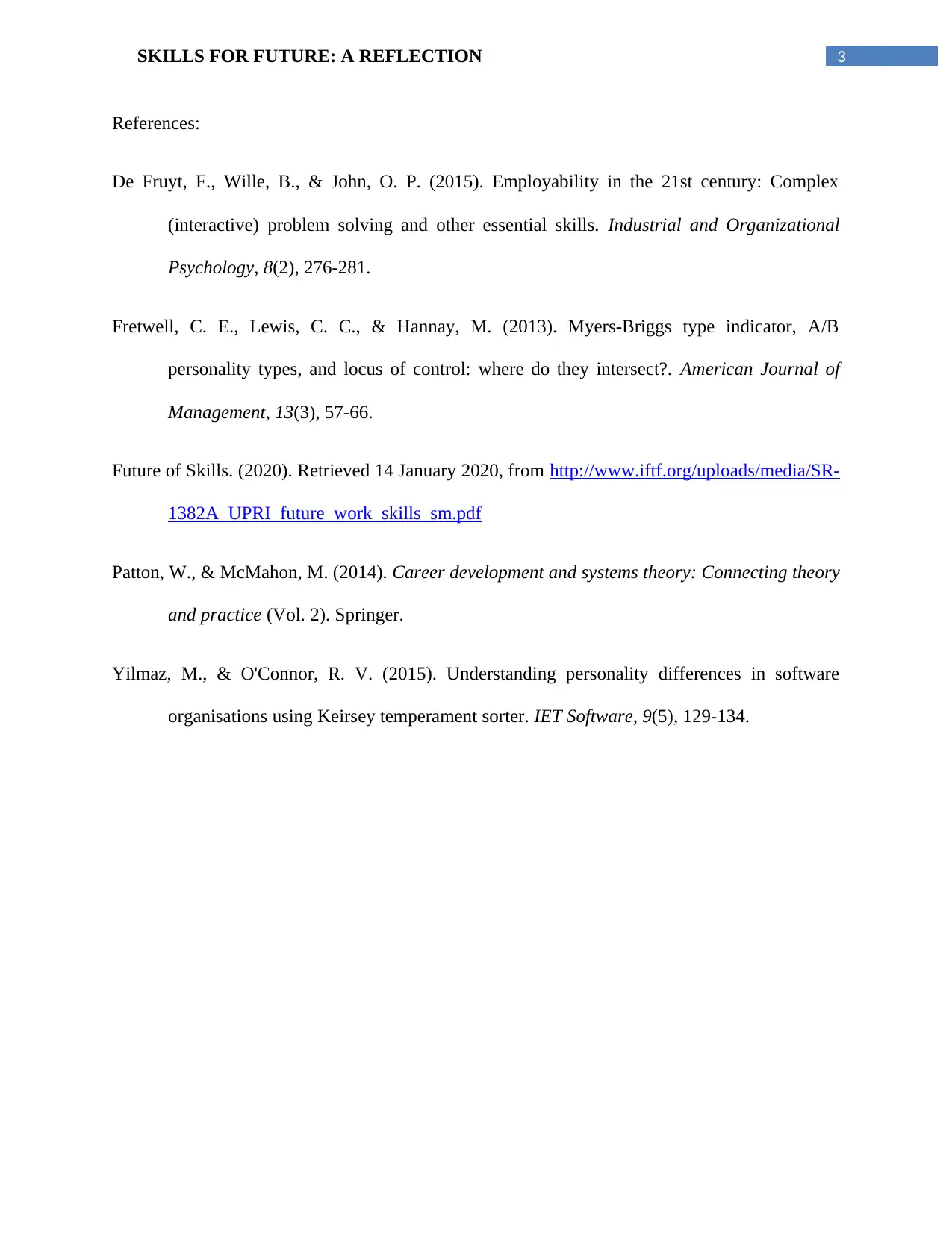CAR20001 Future Work Skills Reflection: Employability and Career
VerifiedAdded on 2022/08/25
|4
|948
|18
Homework Assignment
AI Summary
This assignment is a reflection on future work skills, career development, and employability, focusing on the student's aspirations as an accountant. The reflection begins by applying the happenstance learning theory to the student's career interests, highlighting the importance of practical experience and continuous learning. The core of the assignment examines the relevance of 'computational skills' as a future work skill, emphasizing its significance in handling data and technology in the accounting profession. The student utilizes the STAR model to assess their competency in audit scenarios. Additionally, the reflection discusses self-assessment methods such as MBTI and Keirsey Temperament Sorter to identify strengths and weaknesses, and to understand their personality traits in the context of their career goals. The assignment demonstrates the student's understanding of career development, self-assessment, and future work skills, providing a comprehensive overview of their career aspirations and the skills needed to succeed in the accounting field. The assignment is a part of the CAR20001 course at Swinburne University.
1 out of 4










![[object Object]](/_next/static/media/star-bottom.7253800d.svg)